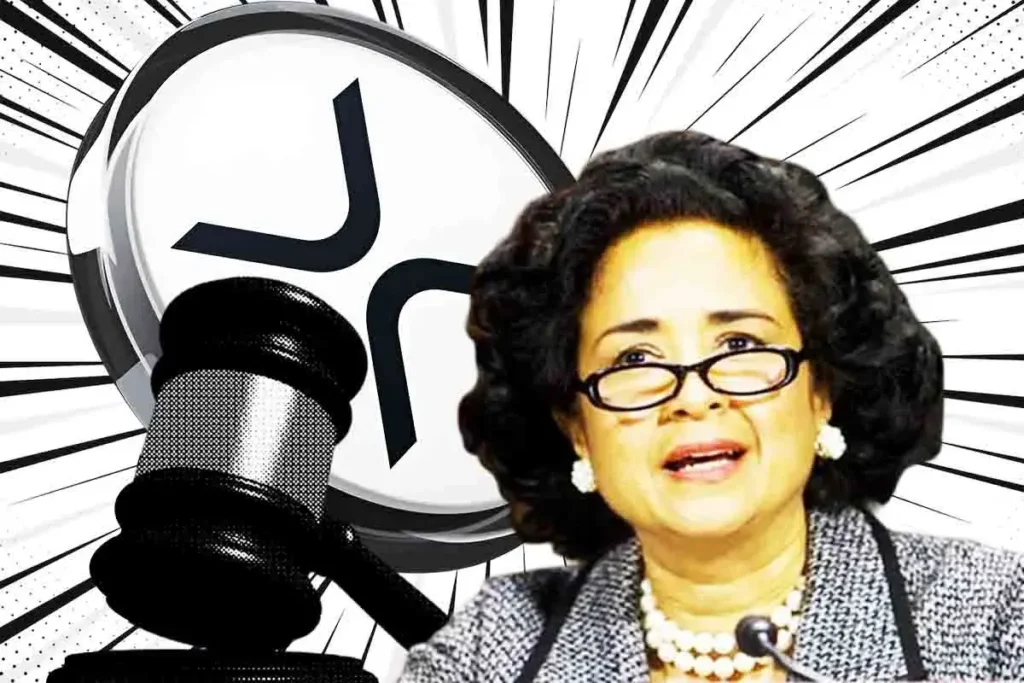Major Setback in XRP Lawsuit: Judge Torres Denies Indicative Ruling
In a significant development in the long-running XRP lawsuit, Judge Analisa Torres has denied both Ripple and the SEC’s request for an indicative ruling, prolonging the legal battle between the two parties. This ruling is not just a procedural hurdle; it serves as an important marker in the ongoing discourse regarding cryptocurrency regulation in the United States. Legal experts and analysts within the crypto community are now processing the ramifications of this decision.
Judge Torres’s Reasoning Behind the Denial
Judge Torres outlined specific reasons for denying the motion, emphasizing that it was "procedurally improper." In her ruling, she noted that the request aimed to absolve Ripple from certain obligations, including an illegal sale of securities and payment of civil penalties. By structuring their motion as a request for settlement approval, the parties involved failed to substantively address the burden they must overcome to vacate the injunction and reduce the civil penalty significantly. According to Judge Torres, both the SEC and Ripple did not sufficiently exhibit the “exceptional circumstances” required under the Federal Rule of Civil Procedure for such relief.
Implications for Ripple and the SEC
The SEC’s recent filing of a settlement agreement with Ripple had aimed to resolve some contentious aspects of the case. The Commission requested that the court vacate the injunction against Ripple and reduce the monetary judgment from $125 million to $50 million. However, Judge Torres’s rejection of this request has thrown into question the feasibility of a swift resolution. As things stand, both parties may need to reconsider their strategies moving forward. Given that Judge Torres demanded more substantial justification for their motion, the light of a potential settlement appears dimmer than before.
The Burden of Proof and Public Interest
Legal expert Bill Morgan noted that an essential aspect of Judge Torres’s ruling hinges on the notion of public interest. For a settlement to gain traction, it must not only satisfy the parties involved but also align with broader societal expectations and regulations. Judge Torres’s insistence on demonstrating exceptional circumstances serves as a reminder that legal and regulatory frameworks in the cryptocurrency space remain intricate. Ripple and the SEC must navigate these complexities effectively if they hope to reach a favorable outcome.
The State of Cryptocurrency Regulation
The developments in the XRP lawsuit underscore the ongoing challenges cryptocurrency firms face in the United States. As regulatory scrutiny intensifies, companies within the crypto space are being pressed to comply with stringent guidelines, especially concerning securities laws. The way this lawsuit unfolds may set a precedent for how other cases are handled in the future, shaping the landscape of crypto regulation. As more entities enter the market, the need for clear, comprehensive regulations becomes increasingly critical.
Looking Ahead: What’s Next for Ripple?
As Ripple grapples with this setback, the focus will undoubtedly shift toward strategizing for the future. While a settlement appears less achievable at this moment, consultation with legal experts and advocacy for regulatory frameworks that better accommodate cryptocurrency might be critical steps ahead. Furthermore, addressing the public interest dimension will be key for Ripple and similar entities looking to navigate the murky waters of U.S. regulatory standards.
Conclusion
The denial of the indicative ruling by Judge Torres marks a pivotal moment in the XRP lawsuit, with far-reaching implications for Ripple, the SEC, and the broader cryptocurrency landscape. Both parties must now reassess their positions and strategies in light of this decision. As this legal saga continues, stakeholders across the crypto industry will be closely monitoring developments, hoping for a resolution that aligns with the evolving regulatory framework yet remains sensitive to public interest considerations. The outcome of this case could very well shape future legal encounters in the world of cryptocurrencies, making it essential for involved parties to tread carefully in the evolving landscape.
By exploring these themes, the article aims to address the critical points surrounding Judge Torres’s ruling and its implications for the broader cryptocurrency landscape, thereby optimizing for SEO through the use of relevant keywords and phrases.


